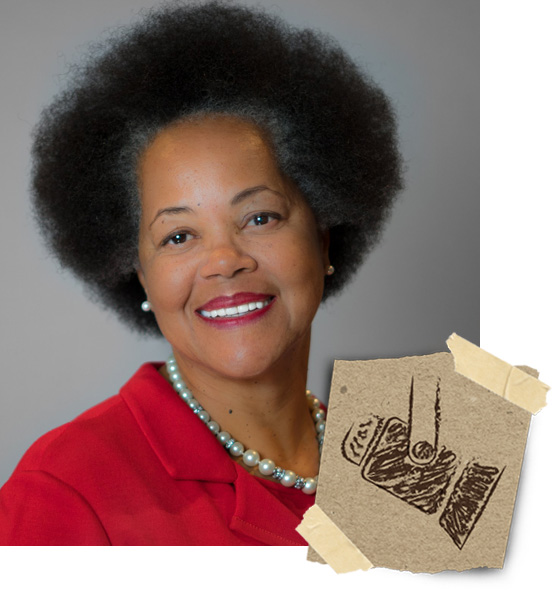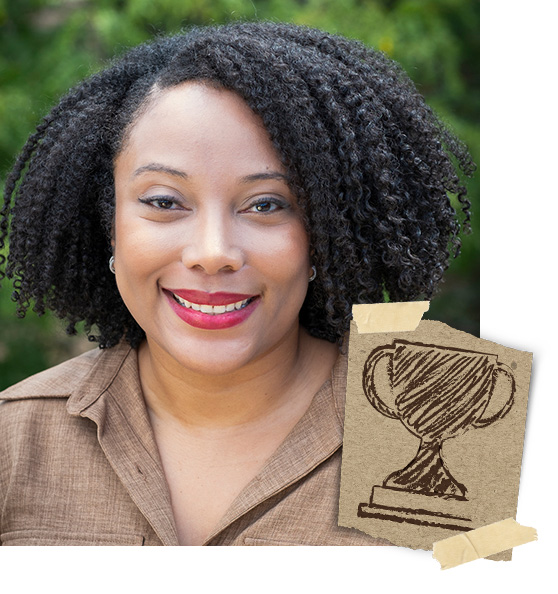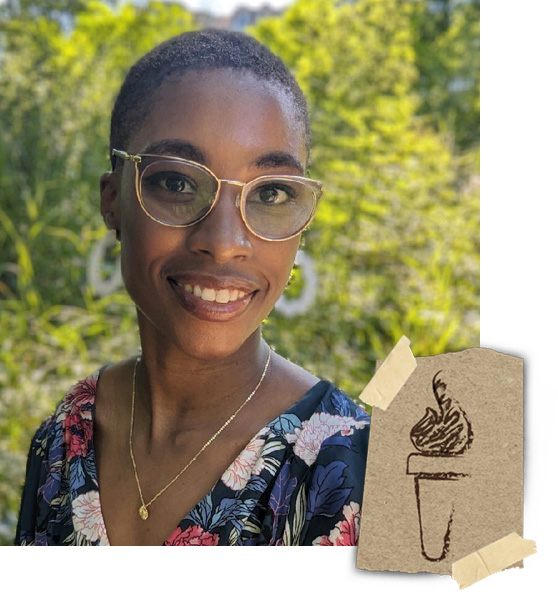Access Spotlight: Karen Schrock
February 7, 2025 - Emily Jodway
 During the month of February, Black History Month, we remember and celebrate the lives and achievements of African Americans as well as the struggles they have endured on the continuing journey to achieving full citizenship in the United States. Our Access Spotlight this month is Karen Schrock, a woman who has dedicated her life and career toward improving public health and other human services in the State of Michigan. Her continuing commitment to MSU is expressed most recently as she devotes her time to the College of Social Science and the Social Science Scholars Program, serving as a mentor to aspiring Scholars.
During the month of February, Black History Month, we remember and celebrate the lives and achievements of African Americans as well as the struggles they have endured on the continuing journey to achieving full citizenship in the United States. Our Access Spotlight this month is Karen Schrock, a woman who has dedicated her life and career toward improving public health and other human services in the State of Michigan. Her continuing commitment to MSU is expressed most recently as she devotes her time to the College of Social Science and the Social Science Scholars Program, serving as a mentor to aspiring Scholars.
Schrock credits having grown up within a diverse Detroit neighborhood in the 1950s and 1960s as being particularly helpful in improving her ability to navigate challenging situations along her career path. She grew up in a Jewish neighborhood on Detroit’s Westside and became familiar with Jewish culture, including religious activities. She attended Cass Technical High School with classmates from a variety of Black and White family backgrounds and neighborhoods and considers herself lucky to have been exposed to so many different people and ways of life at such an early age.
When the time came to apply for colleges, Schrock visited the campus of Michigan State and was struck by how inviting and engaging the environment felt. She liked the integration of campus classrooms and housing and the way the campus felt. With the added influence of her sister who was already attending MSU, Schrock’s decision was made.
“There was no way when I was at Michigan State that I could have predicted what my career track would turn out to be,” Schrock says when asked about the start of her academic and career journey. She began college aspiring to be a teacher, before pivoting to the social sciences, first social work and eventually psychology. “I ended up in criminal justice for my Master’s program because of an undergraduate course I took from Professor Zolton Ferency, who really inspired me,” she added. “He was a strong advocate for social justice, and that led to my interest in pursuing criminal justice.”
Upon graduation from the Master’s program in Criminal Justice, Schrock started working with the Michigan League for Human Services, which first exposed her to the way that policy affected service delivery. That experience contributed to her desire to affect public policy through state government. She spent twenty years with the State of Michigan’s Department of Public Health.
“Spending years in the State Substance Abuse Office and moving into other parts of public health provided opportunities to impact public health policy. She led programs such as Children’s Special Health Care Services, the State Office of Substance Abuse Services, and served as founding Director of the State’s Office of Minority Health” she said. “You can’t imagine, as a student, that you’ll have that many opportunities.”
These issues ended up becoming the nucleus of Schrock’s passions. “It became clear to me from my early experiences that health affects every aspect of your life, and without good health, including mental health, you can’t have a very satisfying life,” she explained. She continued to seek out opportunities to learn through exposure in the public health field, hoping to develop a better understanding of what kind of government policies and assistance would help the most among marginalized communities.
Groups and communities that face more discrimination and exclusion based on their race, gender, ethnicity or other factors often experience both greater barriers in access to basic health care services and worse health outcomes. We now understand that “social determinants of health”, or non-medical factors that influence health outcomes, have a significant impact on the health of communities. Housing, economic policies, transportation, and “food deserts” are among the social determinants that have a direct impact on one’s personal well-being.
Schrock has held a number of leadership positions at the state and community level, from being directly involved in policy and decision-making at the Michigan Department of Public Health, to working as the President and CEO of a behavioral health organization headquartered on the lower Eastside of Detroit. She cites several high points within her career, like the creation of the Office of Minority Health for the State of Michigan, but none of these accomplishments came without the share of adversity she experienced as a Black woman.
“Racism is still a reality in this country, and often you find yourself in a room where you’re the only one in that room that looks like you or has had the experiences you have had. You may not necessarily be recognized or acknowledged for your abilities,” she explained. “That’s a major issue that I’ve personally had to face. Thankfully, I was raised by a strong, supportive community that equipped me to overcome barriers placed before me. This is true for many in my generation and for generations before me.”
Throughout her life, Schrock has remained committed to giving back to both the community where she lives and her Spartan community. She has served on many nonprofit boards and currently serves on the Board of Directors for Metropolitan Organizing Strategy Enabling Strength (MOSES) in Detroit, a nonprofit dedicated to developing local grassroots leaders and addressing social justice issues. She serves as a Social Science Scholars Program mentor and was previously a member of their Advisory Board. She also currently serves on the City of Southfield’s Charter Review Committee. While she is now retired, she considers herself “busier than ever.”
“If you’re living in a community, why not invest in that community by giving of yourself and your time?” she said. “You can share your expertise, you can support organizations … whatever it is, you’re making a direct contribution to your community.”
It was a no-brainer for Schrock to decide to continue volunteering her time to these important causes she loves so much. “As someone who grew up in the city of Detroit, who saw its peak in the 1950s, its decline, and now its renaissance,” she said. “I love the way the people here just won’t give up. It’s a reflection of our grit. I could speak about the culture, but it really takes the people to give the city its unique flavor, and that’s what I love.
As for Michigan State, Schrock describes the school as “an institution that truly serves the state,” and she enjoys the opportunity to mentor and connect with students in the Scholars program, particularly young Black women from Detroit who are first-generation college students.
“I love being connected to them, to share with them some of the knowledge and wisdom that I’ve gained as an older person and helping them understand how to navigate different situations that they have faced or will face in the future,” she added.
Schrock is also a great proponent of celebrating and promoting Black History, not just during Black History Month, but ideally year-round. She explains that, even today, she is always learning and discovering new stories of Black triumph and accomplishments. Tyler Perry’s recent film “The Six Triple Eight” is bringing that story to light just as “Hidden Figures” reminded us how much had not been taught. She adds it is up to all of us to bring these and other stories to light so that people may better understand history, whether it’s by sharing about a recent visit to a cultural institution at the dinner table, or an academic taking extra steps to add new lessons to their curricula.
“We have to look at what we’re doing to make sure people understand the contributions that have been made over the centuries by Black people in this country. Every one of us can do a better job of making sure people understand. We have to face this issue head on and try to do what we can to help people know the real history and contributions of Blacks in this country. Black History is American History!”
Honorees’ views are their own and do not necessarily reflect those of the College of Social Science.
Read more:

Access Champion
Faculty/Staff
Dr. Monique Kelly
Our Access Champion for this month is Dr. Monique Kelly. Dr. Kelly is scholar-educator whose work focuses on racial and ethnic stratification and inequality.

Access Torch
Student
Danielle Cadet
Ms. Cadet is a PhD student in Human Development and Family Studies whose decolonizing research, promotes racial stress resiliency in Black youth.

Access Matters
We strive to cultivate an inclusive and welcoming college environment that celebrates a diversity of people, ideas, and perspectives.

